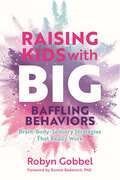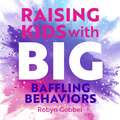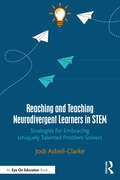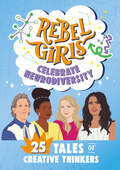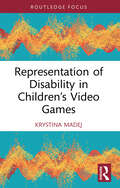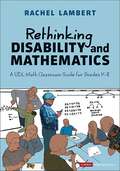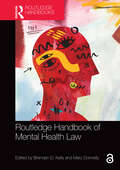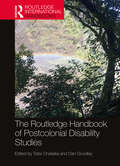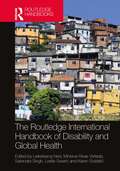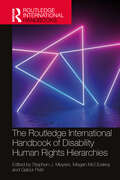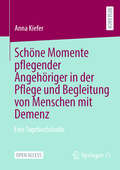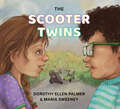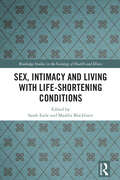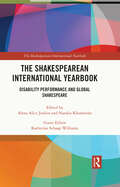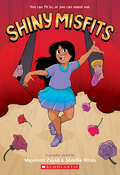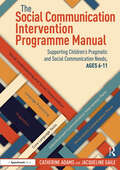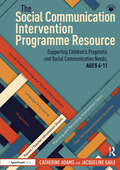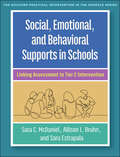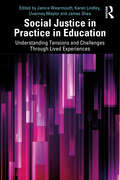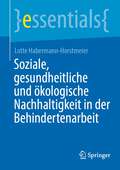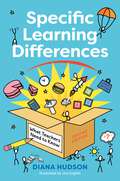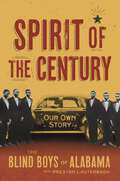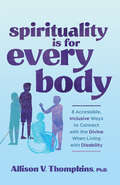- Table View
- List View
Raising Kids with Big, Baffling Behaviors: Brain-Body-Sensory Strategies That Really Work
by Robyn Gobbel"All behavior makes sense"'"It most certainly does not!", is probably your first reaction.Parenting and neuroscience expert Robyn Gobbel is here to reveal how all behavior, no matter how baffling, can be explained and remedied. You just need to look past the behavior and understand what's going on inside.Robyn decodes the latest brain science into easy-to-understand principles and metaphors to help you become an expert in your child's behavior. She reveals simple ways to help you regulate and connect with your child, with brain-, body- and sensory-based strategies to overcome day-to-day challenges. She also provides you with the knowledge to understand and regulate your own brain so that you don't flip your lid when your child flips theirs.Let this be your lifeline for parenting or caring for any child with baffling behaviors and hidden challenges, including kids who have experienced adversity, or with additional needs.
Raising Kids with Big, Baffling Behaviors: Brain-Body-Sensory Strategies That Really Work
by Robyn Gobbel"All behavior makes sense"'"It most certainly does not!", is probably your first reaction.Parenting and neuroscience expert Robyn Gobbel is here to reveal how all behavior, no matter how baffling, can be explained and remedied. You just need to look past the behavior and understand what's going on inside.Robyn decodes the latest brain science into easy-to-understand principles and metaphors to help you become an expert in your child's behavior. She reveals simple ways to help you regulate and connect with your child, with brain-, body- and sensory-based strategies to overcome day-to-day challenges. She also provides you with the knowledge to understand and regulate your own brain so that you don't flip your lid when your child flips theirs.Let this be your lifeline for parenting or caring for any child with baffling behaviors and hidden challenges, including kids who have experienced adversity, or with additional needs.
Reaching and Teaching Neurodivergent Learners in STEM: Strategies for Embracing Uniquely Talented Problem Solvers
by Jodi Asbell-ClarkeProviding salient stories and practical strategies, this book empowers educators to embrace the unique talents of neurodivergent learners in science, technology, engineering, and mathematics (STEM). An exploration of the exciting opportunities neurodiversity presents to build an innovative workforce is grounded in a large body of research from psychology, neuroscience, and education. Author Jodi Asbell-Clarke presents individual examples of neurodivergent journeys in STEM to establish evidence-based connections between neurodiversity and the types of innovative problem-solving skills needed in today’s workforce. The featured stories come directly from the author’s many years in inclusive classrooms with STEM teachers along with interviews from many neurodivergent professionals in STEM. Teachers will learn how to embrace the unique brilliance and potential of the neurodivergent learners in their classroom, working against historic marginalization and deficit-based perspectives of neurodiversity within the education system. Featuring illustrations of classroom-designed tools and materials alongside basic strategies to support executive function and emotion in learning, this book will help you nurture the talents of your neurodivergent learners and recognize their unique potential within STEM. Ideal for K-12 classroom teachers, special educators, learning specialists, psychologists, and school administrators.
Rebel Girls Celebrate Neurodiversity: 25 Tales of Creative Thinkers (Rebel Girls Minis)
by Rebel GirlsTRUE STORIES OF NEURODIVERGENT ICONSThis collection features 25 inspiring tales of neurodivergent artists, athletes, innovators, and more. Read about how these women and girls thought creatively, achieved their dreams, and advocated for the rights of neurodivergent people everywhere.Walk the runway with Madeline Stuart, the first professional model with Down syndrome. Steal the scene with Salma Hayek, the award-winning actor with dyslexia. Learn how journalist and TV host Lisa Ling thrives with ADD, and how Temple Grandin&’s autism has opened up new and compassionate ways of interacting with animals.This book pairs inspiring, easy-to-read text with colorful full-page portraits created by female and nonbinary artists from all around the world. Plus, scannable codes let you listen to longer stories on the Rebel Girls app!
Representation of Disability in Children’s Video Games (Routledge Research in Disability and Media Studies)
by Krystina MadejRepresentation of Disability in Children’s Video Games looks at how children’s engagement with characters and stories in video games helps create the perception of disability they have as teens and adults. Drawing on child development theory supported by neuroscience, the book shows how the scaffold of information, the schema, adults have of disability is first created at a very young age as they interact through game play with characters with disabilities. Positing that early video game play experiences should provide exposure to narrative schemas that add understanding and help create meaning about the disability represented, the book presents how such representation in children’s video games maps against cognitive development, and the psychomotor and cognitive needs and abilities of children ages 3 to 12. Close reading of over 40 PEGI 3 and PEGI 7 (ESRB E, 10+) games and analysis of games as diverse as Backyard Baseball and Sly Cooper helped define broad categories of representation: representation can be cosmetic, providing exposure but not gameplay utility; it can be incidental, used as a device that provides purpose for the narrative; or it can more authentically represent the disability as integral to the character and their life. The book provides readers with an overview of contemporary games that betters their understanding of how children’s games present disability and how children create their perceptions through interaction with characters and stories. This book will be of interest to academics and students of game studies, in particular topics such as behavioural science, ethics, and HCI, as well as sociology, communications, and digital media.
Rethinking Disability and Mathematics: A UDL Math Classroom Guide for Grades K-8 (Corwin Mathematics Series)
by Rachel LambertEvery child has a right to make sense of math, and to use math to make sense of their worlds. Despite their gifts, students with disabilities are often viewed from a deficit standpoint in mathematics classrooms. These students are often conceptualized as needing to be fixed or remediated. Rethinking Disability and Mathematics argues that mathematics should be a transformative space for these students, a place where they can discover their power and potential and be appreciated for their many strengths. Author Rachel Lambert introduces Universal Design for Learning for Math (UDL Math), a way to design math classrooms that empowers disabled and neurodiverse students to engage in mathematics in ways that lead to meaningful and joyful math learning. The book showcases how UDL Math can open up mathematics classrooms so that they provide access to meaningful understanding and an identity as a math learner to a wider range of students. Weaved throughout the book are the voices of neurodiverse learners telling their own stories of math learning. Through stories of real teachers recognizing the barriers in their own math classrooms and redesigning to increase access, the book: Reframes students with disabilities from a deficit to an asset perspective, paving the way for trusting their mathematical thinking Offers equitable math instruction for all learners, including those with disabilities, neurodiverse students, and/or multilingual learners Applies UDL to the math classroom, providing practical tips and techniques to support students′ cognitive, affective, and strategic development Immerses readers in math classrooms where all students are engaged in meaningful mathematics, from special education day classes to inclusive general education classrooms, from grades K-8. Integrates research on mathematical learning including critical math content such as developing number sense and place value, fluency with math facts and operations, and understanding fractions and algebraic thinking. Explores critical issues such as writing IEP goals in math This book is designed for all math educators, both those trained as general education teachers and those trained as special education teachers. The UDL Math approach is adapted to work for all learners because everyone varies in how they perceive the world and in how they approach mathematical problem solving. When we rethink mathematics to include multiple ways of being a math learner, we make math accessible and engaging for a wider group of learners.
Rethinking Disability and Mathematics: A UDL Math Classroom Guide for Grades K-8 (Corwin Mathematics Series)
by Rachel LambertEvery child has a right to make sense of math, and to use math to make sense of their worlds. Despite their gifts, students with disabilities are often viewed from a deficit standpoint in mathematics classrooms. These students are often conceptualized as needing to be fixed or remediated. Rethinking Disability and Mathematics argues that mathematics should be a transformative space for these students, a place where they can discover their power and potential and be appreciated for their many strengths. Author Rachel Lambert introduces Universal Design for Learning for Math (UDL Math), a way to design math classrooms that empowers disabled and neurodiverse students to engage in mathematics in ways that lead to meaningful and joyful math learning. The book showcases how UDL Math can open up mathematics classrooms so that they provide access to meaningful understanding and an identity as a math learner to a wider range of students. Weaved throughout the book are the voices of neurodiverse learners telling their own stories of math learning. Through stories of real teachers recognizing the barriers in their own math classrooms and redesigning to increase access, the book: Reframes students with disabilities from a deficit to an asset perspective, paving the way for trusting their mathematical thinking Offers equitable math instruction for all learners, including those with disabilities, neurodiverse students, and/or multilingual learners Applies UDL to the math classroom, providing practical tips and techniques to support students′ cognitive, affective, and strategic development Immerses readers in math classrooms where all students are engaged in meaningful mathematics, from special education day classes to inclusive general education classrooms, from grades K-8. Integrates research on mathematical learning including critical math content such as developing number sense and place value, fluency with math facts and operations, and understanding fractions and algebraic thinking. Explores critical issues such as writing IEP goals in math This book is designed for all math educators, both those trained as general education teachers and those trained as special education teachers. The UDL Math approach is adapted to work for all learners because everyone varies in how they perceive the world and in how they approach mathematical problem solving. When we rethink mathematics to include multiple ways of being a math learner, we make math accessible and engaging for a wider group of learners.
Routledge Handbook of Mental Health Law (Routledge Handbooks in Law)
by Brendan D. Kelly and Mary DonnellyMental health law is a rapidly evolving area of practice and research, with growing global dimensions. This work reflects the increasing importance of this field, critically discussing key issues of controversy and debate, and providing up-to-date analysis of cutting-edge developments in Africa, Asia, Europe, the Americas, and Australia. This is a timely moment for this book to appear. The United Nations’ Convention on the Rights of Persons with Disabilities (2006) sought to transform the landscape in which mental health law is developed and implemented. This Convention, along with other developments, has, to varying degrees, informed sweeping legislative reforms in many countries around the world. These and other developments are discussed here. Contributors come from a wide range of countries and a variety of academic backgrounds including ethics, law, philosophy, psychiatry, and psychology. Some contributions are also informed by lived experience, whether in person or as family members. The result is a rich, polyphonic, and sometimes discordant account of what mental health law is and what it might be. The Handbook is aimed at mental health scholars and practitioners as well as students of law, human rights, disability studies, and psychiatry, and campaigners and law- and policy-makers.
Routledge Handbook of Mental Health Law (Routledge Handbooks in Law)
by Brendan D. Kelly and Mary DonnellyMental health law is a rapidly evolving area of practice and research, with growing global dimensions. This work reflects the increasing importance of this field, critically discussing key issues of controversy and debate, and providing up-to-date analysis of cutting-edge developments in Africa, Asia, Europe, the Americas, and Australia.This is a timely moment for this book to appear. The United Nations’ Convention on the Rights of Persons with Disabilities (2006) sought to transform the landscape in which mental health law is developed and implemented. This Convention, along with other developments, has, to varying degrees, informed sweeping legislative reforms in many countries around the world. These and other developments are discussed here. Contributors come from a wide range of countries and a variety of academic backgrounds including ethics, law, philosophy, psychiatry, and psychology. Some contributions are also informed by lived experience, whether in person or as family members. The result is a rich, polyphonic, and sometimes discordant account of what mental health law is and what it might be.The Handbook is aimed at mental health scholars and practitioners as well as students of law, human rights, disability studies, and psychiatry, and campaigners and law- and policy-makers.
The Routledge Handbook of Postcolonial Disability Studies (Routledge International Handbooks)
by Tsitsi Chataika Dan GoodleyThis book centres and explores postcolonial theory, which looks at issues of power, economics, politics, religion and culture and how these elements work in relation to colonial supremacy. It argues that disability is a constitutive material presence in many postcolonial societies and that progressive disability politics arise from postcolonial concerns. By drawing these two subjects together, this handbook challenges oppression, voicelessness, stereotyping, undermining, neo-colonisation and postcolonisation and bridges binary debate between global North and the global South.The book is divided into eight sectionsi Setting the Sceneii Decolonising Disability Studiesiii Postcolonial Theory, Inclusive Developmentiv Postcolonial Disability Studies and Disability Activismv Postcolonial Disability and Childhood Studiesvi Postcolonial Disability Studies and Educationvii Postcolonial Disability Studies, Gender, Race and Religionviii ConclusionAnd comprised of 27 newly written chapters, this book leads with postcolonial perspectives – closely followed by an engagement with critical disability studies – with the explicit aim of foregrounding these contributions; pulling them in from the edges of empirical and theoretical work where they often reside in mainstream academic literature.The book will be of interest to all scholars and students of disability studies and postcolonial studies as well as those working in sociology, literature and development studies.
The Routledge International Handbook of Disability and Global Health (Routledge International Handbooks)
by Leslie Swartz Karen Soldatić Lieketseng Ned Minerva Rivas Velarde Satendra SinghThis handbook will raise awareness about the importance of health and well-being of people with disabilities in the context of the global development agenda: Leaving No-one Behind.There has been a growing discussion on how people with disabilities should be included in the global health landscape. An estimated one billion people have some form of disability, 80% of whom live in low- and middle-income settings. People with disabilities are more likely to be poor, with restricted access to health and social services, education, rehabilitation and employment. Despite this, people with disabilities are often overlooked in global health and development efforts. Furthermore, the COVID-19 pandemic has shown that unless systematically planned for and included in policies and programmes, people with disabilities remain at an increased risk of being adversely affected in times of humanitarian crisis and emergency disasters.Divided into eight sections: Disability and Health Frameworks Health Justice, Rights and Bioethics Gendering Disability Health Disability and Global Mental Health Disability and Access to Healthcare, Including Workforce Development Crises and Health Technology and Digital Health Disability, Ageing and Dementia Care This handbook covers the full range of topics pertaining to disability and global health including inclusive health; access to rehabilitation; global mental health and disability; medical training and disability; community based inclusive development for improving health and rehabilitation; maternal health and sexual reproduction; preventive care and health promotion for people with disabilities; health, disability and indigenous knowledges; bioethics and human rights; data protection; and health in the global south.It will be of interest to all scholars, students and professionals working in the fields of disability studies, health studies, nursing, medicine, allied health, development studies and sociology.
The Routledge International Handbook of Disability Human Rights Hierarchies (Routledge International Handbooks)
by Stephen J. Meyers Megan McCloskey Gabor PetriDisability is defined by hierarchy. Regardless of culture or context, persons with disabilities are almost always pushed to the bottom of the social hierarchy. With the advent of the Convention on the Rights of Persons with Disabilities (2006), disability human rights seemingly provided a path forward for tearing down ableist social hierarchies and ensuring that all persons with disabilities everywhere were treated equally. Despite important progress, the disability human rights project not only remains incomplete, but has often created new hierarchies among persons with disabilities themselves or across the human rights it promotes. Certain groups of persons with disabilities have gained new voices while others remain silenced and certain rights are prioritized over others depending on what states, international organizations, or advocates want rather than what those on the ground need most. This volume was inspired both by the continued need to expose human rights violations against persons with disabilities, but to also explore the nuanced role that hierarchies play in the spread, implementation, and protection of disability human rights. The enjoyment of human rights is not equal nor is the recognition of specific individuals and groups’ rights. In order to change this situation, inequalities across the disability human rights movement must be explored. Divided into five parts: Who counts as disabled? Political, social, and cultural context Which rights on top, whose rights on bottom? Pushed to the periphery in the disability rights movement Representations of disability and comprised of 34 newly-written chapters including case-studies from the Anglophone Caribbean, Bangladesh, Bosnia-Herzegovina, China, Ghana, Haiti, Hungary, India, Israel, Kenya, Latin America, Poland, Russia, Scotland, Serbia and South Africa, and other countries, this book will be of interest to all scholars and students of disability studies, sociology, human rights law and social policy.
Schöne Momente pflegender Angehöriger in der Pflege und Begleitung von Menschen mit Demenz: Eine Tagebuchstudie
by Anna KieferIn diesem Open Access-Buch wird gezeigt, wie pflegende Angehörige mit Hilfe einer Tagebuchvorlage auf die Wahrnehmung schöner Momente in der Begleitung ihrer an Demenz erkrankten Familienmitglieder sensibilisiert werden können. Tagebücher sind eine beliebte Möglichkeit zur Verarbeitung und Bewältigung von Krisensituationen und können dabei der Selbstreflexion und Belastungsverarbeitung dienen. Insbesondere positives Schreiben kann durch das Erinnern und Reflektieren schöner Momente und Emotionen nachweislich zu einem höheren Wohlbefinden und zur Steigerung der Selbstwirksamkeit führen. Die Begleitung eines Menschen mit Demenz geht für pflegende Angehörige häufig mit einer Vielzahl an Belastungen und Herausforderungen einher, weshalb diese häufig aus der Belastungsperspektive erlebt wird. Schöne Momente innerhalb der Sorgebeziehung zwischen pflegenden Angehörigen und Menschen mit Demenz werden dabei seltener bewusst wahrgenommen. Die Ergebnisse der Tagebuchstudie zeigen individuelle Auswirkungen der Wahrnehmung und Sensibilisierung schöner Momente.
The Scooter Twins
by Dorothy Ellen PalmerMelanie and Melvin may be twins, but they couldn’t be more different. Melanie is LOUD and Melvin is quiet. Melvin likes frogs and Melanie loves MOTORCYCLES! When the twins learn that they will get their very own mobility scooters, Melanie is excited to race to school, but Melvin is worried he’ll fall — and that people will stare. And there’s a problem: Grandma can’t afford the scooters without selling one of Mom’s treasured paintings, one of the only things the twins have left to remember their parents. In the process of getting their scooters, Melanie and Melvin have to navigate challenges that people with disabilities face on a daily basis: rudeness from a store clerk and products that aren’t made with kids in mind. But in the end, Melanie and Melvin choose scooters that are just right for them and make moving through their neighborhood a new adventure. Written by disability advocate and mobility scooter user Dorothy Ellen Palmer, and illustrated by Maria Sweeney, The Scooter Twins is an #ownvoices story that shares the joys and challenges of disabled childhood, and offers many kids who get new wheels the opportunity to find themselves in the pages of a book. Key Text Features illustrations Correlates to the Common Core States Standards in English Language Arts: CCSS.ELA-LITERACY.RL.2.3 Describe how characters in a story respond to major events and challenges. CCSS.ELA-LITERACY.RL.4.3 Describe in depth a character, setting, or event in a story or drama, drawing on specific details in the text (e.g., a character's thoughts, words, or actions).
Sex, Intimacy and Living with Life-Shortening Conditions
by Sarah Earle Maddie BlackburnThis multi-disciplinary and inclusive collection brings together theoretically informed and empirically focused research on sex, intimacy and reproduction in relation to young people and adults with life-shortening conditions. Advances in healthcare mean that increasing numbers of young people with life-shortening conditions are transitioning into adulthood. Issues such as sex and intimacy, dating and relationships, fertility and having children are increasingly relevant to them and to the people that support them, including families, carers, practitioners and professional education, health and social care agencies. This three-part book explores the relevance and significance of this field, examines everyday experiences, and highlights the challenges faced by individuals and organisations in addressing the needs of such people in daily life and in the context of practice. Drawing on perspectives from sociology, disability studies, epidemiology, health policy, psychotherapy, legal studies, queer studies and nursing, this ground-breaking volume is written by academics, policy makers, practitioners and experts by experience. It is an essential read for all those practising and researching in the fields of sexuality, chronic illness and disability and transition.
The Shakespearean International Yearbook: Disability Performance and Global Shakespeare (The Shakespearean International Yearbook)
by Alexa Alice Joubin Natalia Khomenko Katherine Schaap WilliamsThe Shakespearean International Yearbook surveys the present state of Shakespeare studies in global contexts, addressing issues that are fundamental to our interpretive encounter with Shakespeare’s work and his time. Contributions are solicited from scholars across the field and from both hemispheres of the globe who represent diverse career stages and linguistic traditions. Both new and ongoing trends are examined in comparative contexts, and emerging voices in different cultural contexts are featured alongside established scholarship. Each volume features a collection of articles that focus on a theme curated by a specialist Guest Editor, along with coverage of the current state of the field in other aspects. An essential reference tool for scholars of early modern literature and culture, this annual publication captures, from year to year, current and developing thought in global Shakespeare scholarship and performance practice worldwide.
Shiny Misfits: A Graphic Novel
by Maysoon ZayidBay Ann doesn't think she's a star--she knows it! Now how does she prove it to the rest of the world? This is a hilarious graphic novel about friendship, fame, and fighting for control of your own story, perfect for fans of Nat Enough, Click, and Invisible.Bay Ann wants to shine. No matter what.She's sure her moment in the spotlight has arrived when she wins the school talent show with a showstopping tap routine! But then her classmate and crush, Alyee Maq, causes her to wobble and almost fall. The video of him catching her goes viral, making Alyee an overnight sensation for "helping her." Bay Ann is reduced to her disability and her talent is ignored.Bay Ann doesn't want her classmate to get all the fame, and she is NOT satisfied being anything but the best. She'll do everything in her power to beat Alyee at his own attention-seeking game. With the help of her two best friends, Michelle and Davey Matt, she'll go up against Alyee and his crew to prove she's number one.But as Bay Ann tries to find the thing that really makes her stand out, everything she tries goes disastrously wrong. What if the only way to beat her enemy . . . is to join him?
The Social Communication Intervention Programme Manual: Supporting Children's Pragmatic and Social Communication Needs, Ages 6-11 (The Social Communication Intervention Programme)
by Catherine Adams Jacqueline GaileThe Social Communication Intervention Programme (SCIP) has been developed to support school-aged children (6–11 years) with social communication, pragmatic, and language needs. The Social Communication Intervention Programme Manual provides a rationale and method for providing specialist level language therapy for these children who have significant social communication differences. Evidence for the effectiveness of SCIP is included in The Manual.This book introduces the SCIP model and explores the three main components: social understanding/social inference, pragmatics, and language processing. Guidance is included on how to link assessment with therapy, how to plan and individualise interventions, and how to proceed with the programme. It contains a wealth of real-life case examples to illustrate key points, with step-by-step instructions for carrying out the interventions.Used alongside The Social Communication Intervention Programme Resource, this book offers a truly practical, tried-and-tested model to provide targeted, individualised intervention for children with social communication challenges. It is an essential tool for speech and language therapists, specialist teachers, and psychologists who are working with children with social communication, pragmatic, and language needs.For the most effective use, The SCIP Manual should be purchased alongside The SCIP Resource.
The Social Communication Intervention Programme Resource: Supporting Children's Pragmatic and Social Communication Needs, Ages 6-11 (The Social Communication Intervention Programme)
by Catherine Adams Jacqueline GaileThe Social Communication Intervention Programme (SCIP) has been developed to support school-aged children (6–11 years) with social communication, pragmatic, and language needs. SCIP provides a rationale and method for providing specialist level pragmatics and language therapy for these children who have significant social communication differences.The SCIP model is introduced in The Social Communication Intervention Programme Manual, and this book presents the content of the intervention programme itself, using a nested structure of 150 adaptable therapy activities. It contains the complete set of resources required to plan and deliver the interventions set out in the companion book, including forms, activities, and ready-made information sheets. Content can also be downloaded and printed for easy use.Used alongside The Social Communication Intervention Programme Manual, this book offers a truly practical, tried-and-tested model to provide targeted, individualised intervention for children with social communication challenges. It is an essential tool for speech and language therapists, specialist teachers, and psychologists who are working with children with social communication, pragmatic, and language needs.For the most effective use, The SCIP Resource should be purchased alongside The SCIP Manual.
Social, Emotional, and Behavioral Supports in Schools: Linking Assessment to Tier 2 Intervention (The Guilford Practical Intervention in the Schools Series)
by Sara C. McDaniel Allison L. Bruhn Sara EstrapalaMeeting a critical need, this accessible guide addresses the "whats," "whys," and "how-tos" of developing and implementing effective Tier 2 social, emotional, and behavioral supports. The book provides explicit steps for identifying K–12 students who could benefit from Tier 2, matching evidence-based interventions to student needs, and making individualized, data-based decisions regarding adapting, fading, or intensifying supports. Chapters review exemplary interventions in the areas of conduct, self-regulation, social issues, emotional issues, and co-occurring academic and social–emotional–behavioral needs. The place of Tier 2 in schoolwide positive behavioral interventions and supports (PBIS) is explained, and keys to implementation fidelity are highlighted. In a large-size format for easy photocopying, the book includes 23 reproducible forms and checklists that can also be downloaded and printed. This book is in The Guilford Practical Intervention in the Schools Series, edited by Sandra M. Chafouleas.
Social Justice in Practice in Education: Understanding Tensions and Challenges Through Lived Experiences
by Janice Wearmouth Karen Lindley Uvanney Maylor James SheaExploring Social Justice in Practice in Education focuses on the tensions and challenges to issues of fairness and social and cognitive justice in the sphere of education. The terms ‘fairness’ and ‘social and cognitive justice’ are often used to justify particular policies and practices in the sphere of education. In providing a clear definition of what they should mean in practice, this book includes a discussion of, and, in some cases, potential resolutions to, tensions and challenges in relation to notions of fairness, and social and cognitive justice that are implicit within individuals’ lived experiences across all phases of education. Through their personal narratives, the authors illustrate how such tensions and challenges have played out in their own lives. They go on to explore differences in interpretations and consequent challenges in putting concepts of social justice into practice. Chapters consider important implications across different sectors and phases of education, including special educational needs, leadership and higher education. This insightful volume will enable educators, at all levels, to hear from students, family members, significant adults/carers and professionals, their experiences of fairness and social justice in education, and about what could be done in the future to redress injustices. It will appeal to readers at all levels in education including those studying for or teaching Education-related degrees at bachelors’, masters’ and doctoral levels.
Soziale, gesundheitliche und ökologische Nachhaltigkeit in der Behindertenarbeit (essentials)
by Lotte Habermann-HorstmeierUm Menschen mit geistiger Behinderung ein nachhaltiges, gesundes Leben zu ermöglichen, braucht es eine nachhaltig gesundheitsfördernde Lebenswelt, die in ein gesundes Ökosystem eingebettet ist, sowie eine sie tragende Gesellschaft, die das Wohl aller Menschen und die Unversehrtheit ihrer natürlichen Umwelt im Blick hat.
Specific Learning Differences, What Teachers Need to Know (Second Edition): Embracing Neurodiversity in the Classroom
by Diana HudsonThe updated, straight-talking and accessible guide is ideal for teachers, teaching assistants, SENCOs, senior leadership and even home schooling parents who want to know more about supporting students with Learning Differences.Highlighting some of the more commonly encountered Specific Learning Differences (SpLD's), expert Diana Hudson concisely describes the signs of those that are most commonly encountered in the classroom. Covering: dyslexia, dyspraxia, dyscalculia, dysgraphia, autism spectrum condition, ADHD, OCD and featuring brand new chapters on Pathological Demand Avoidance (PDA), Sensory Processing Disorder (SPD) and tics and Tourette Syndrome, this book covers all the information you need, whilst reminding us that all neurodivergent children are individuals and have different qualities.Diana provides an overview of each identity and evaluates how you may need to adapt your levels of support in the classroom - as well as practical suggestions for modifying teaching materials and methods to make learning enjoyable, effective and accessible for all students. There are also dedicated chapters on helping students with SpLD's to improve their organisation and develop effective revision skills and exam techniques.
Spirit of the Century: Our Own Story
by The Blind Boys of AlabamaAn insider history of the Blind Boys of Alabama, the longest running group in American music, and the untold story of their world, written with band members and key musical colleagues. The Blind Boys of Alabama are the quintessential Gospel vocal group, and the longest-running musical institution in America. Their story intersects with pivotal moments and issues in American history and is an ideal prism through which to trace music, culture, history, and race in America. Spirit of the Century invites readers to follow along the Blind Boys&’ eight-decade journey together from a segregated trade school, through the rough and tumble indie record game and grinding tour schedule of the golden age of gospel, to starring in an iconic Broadway musical, performing at the White House for three presidents twice, collaborating with Tom Petty, Lou Reed, and Ben Harper, among others, singing the theme song for &“The Wire,&” and winning five Grammys. More than just a story of the Blind Boys' illustrious career, Spirit of the Century also sheds new light on the larger world of African American gospel music, its origins, and the colorful characters at its center. Though there have been several iterations of the group over the decades, Spirit of the Century rounds up all surviving members of the group as contributors to the telling of their own story, and a result, the book offers a unique and intimate perspective on the group's enduring success. Current drummer and road manager Rickie McKinney has been with the group throughout its renaissance, while guitarist Joey Williams, the group&’s sighted member, has been the eyes of the Blind Boys since 1992. Octogenarian Jimmy Lee Carter has a fascinating history, as a fellow student of the original but deceased Blind Boys Clarence Fountain, George Scott, Olice Thomas, Johnny Fields, J.T. Hutton, and Velma Traylor at the Talladega school. Carter is one of a few performers who have been in both the Blind Boys of Alabama and Mississippi. He fronts the Alabama group today as a classic quartet leader and fiery preacher. Along with extensive interviews of Fountain, these legendary musicians provide this book with the voice, firsthand perspective, and authenticity that bring their story the same inspirational power that you hear in their songs. Thought-provoking, heartfelt, and deeply inspiring, Spirit of the Century is a fascinating and one-of-a-kind read that you won't be able to put down.
Spirituality Is for Every Body: 8 Accessible, Inclusive Ways to Connect with the Divine When Living with Disability
by Allison V. ThompkinsA guide that makes spiritual principles and practices accessible to people living with disabilities so they can deepen their connection to God and live more joyful, intentional lives—written by an author with cerebral palsy.Allison Thompkins was born with cerebral palsy and a deep knowing that she has a mission in this life to advocate for the rights of disabled people—a group whose voices are often ignored or silenced.In this first-of-its-kind book, Allison addresses essential spiritual themes—like surrender, prayer, synchronicities, meditation, grace, gratitude, and authentic service—in a way that centers disabled readers and speaks to their particular life challenges. She weaves her lived experience and personal spiritual journey into teachings and wisdom, inviting the reader to see themselves in her story and encouraging them to create a strong relationship with God or Spirit or the Universe, supported by regular spiritual practice.The exercises at the end of each chapter include extensive access notes to allow readers who are blind, deaf, deafblind, or mobility restricted to build a personalized practice that works for them in the body they live in.
